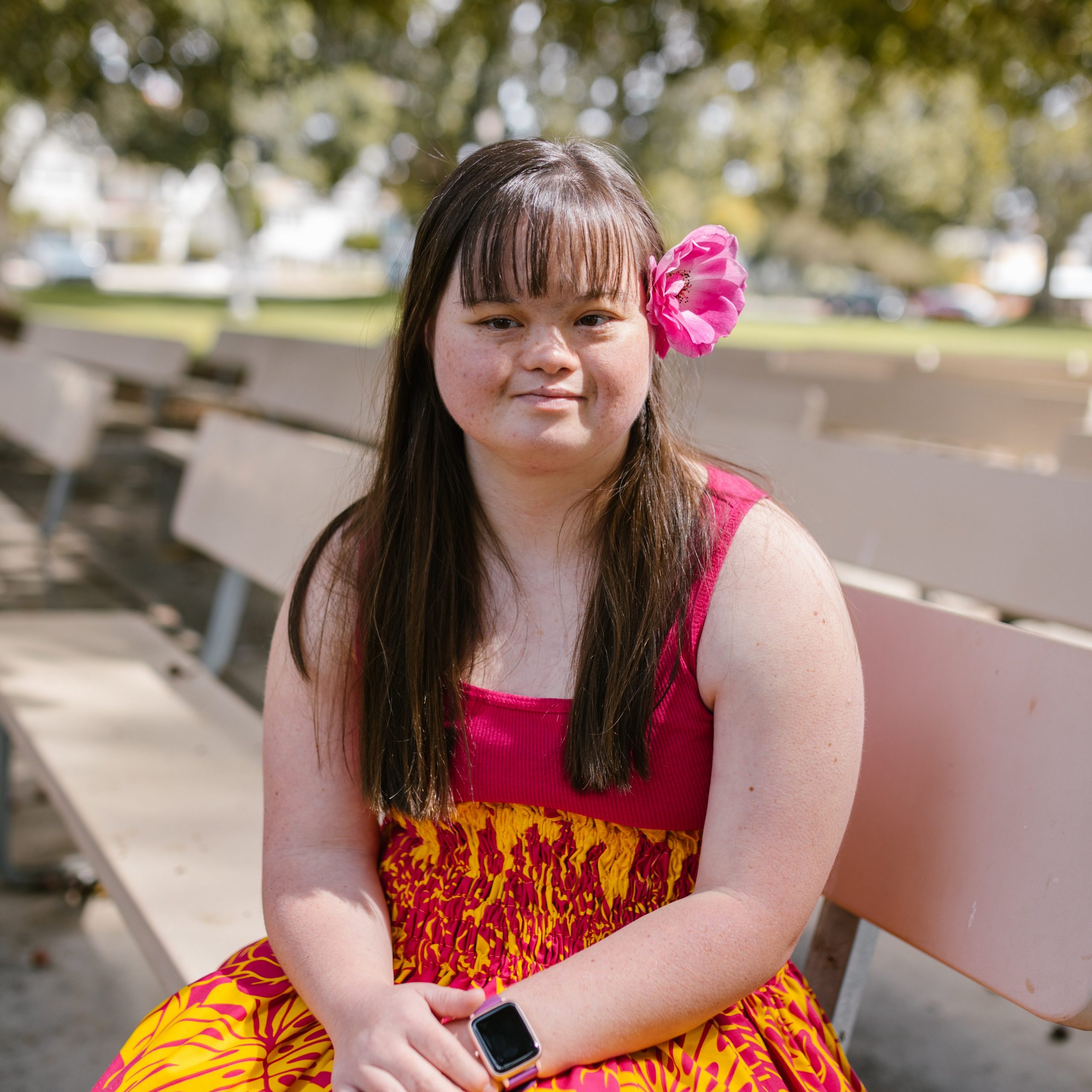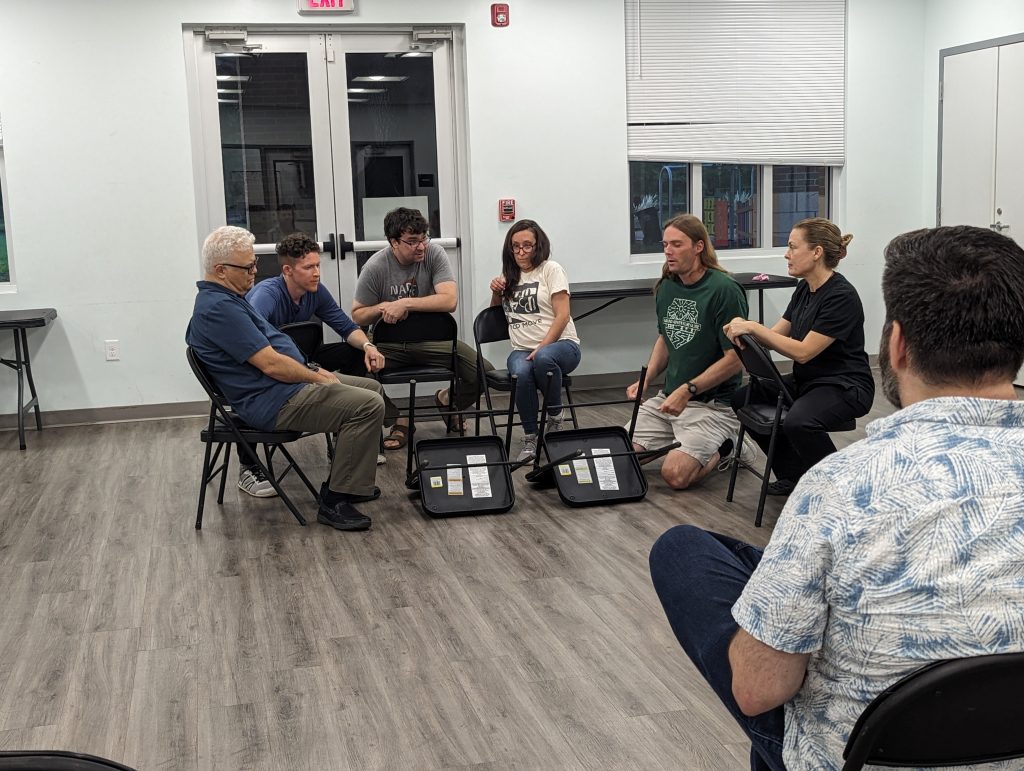Improv education, traditionally associated with comedy and theater, is a powerful tool that can positively impact individuals from various special populations. Learn the remarkable benefits of improv for special populations like those with mental illness, the elderly, and those with special needs. By embracing the principles of improvisation, these populations can experience personal growth, increased social connections, enhanced cognitive abilities, and improved overall well-being.
Special Populations we work with
Individuals with Mental Illness

This refers to individuals who experience various mental health conditions such as depression, anxiety disorders, bipolar disorder, schizophrenia, and others. Improv education provides them with a therapeutic outlet to express themselves, better understand their emotions, and manage their mental health. It promotes personal growth, resilience, and self-confidence.
The Elderly

This refers to individuals who are in the later stages of life, typically aged 65 and above. The elderly often face challenges such as isolation, loneliness, and cognitive decline. Improv education offers them an opportunity to engage with others, build social connections, and create a supportive community. It provides a sense of belonging, stimulates cognitive abilities, and enhances overall well-being.
Those with Special Needs

This refers to individuals with physical, cognitive, or developmental disabilities. They may have conditions such as autism spectrum disorder, Down syndrome, cerebral palsy, or intellectual disabilities. Improv education is inclusive and caters to their unique needs. It promotes social interactions, empathy, and unity among participants, fostering communication skills, social development, and a sense of belonging.
The benefits of Improv for Special Populations
Empowering Personal Growth
Improv education provides a safe and supportive environment for individuals to explore their creativity, express themselves freely, and build self-confidence. For individuals with mental illness, improv can serve as a therapeutic outlet. It allows them to better understand and manage their emotions. Through improv games and exercises, participants develop resilience, adaptability, and a sense of agency, leading to improved self-esteem and personal growth.
Social Connection and Community Building
Improv education fosters a sense of belonging and social connection among participants. For the elderly, who may experience isolation or loneliness, improv offers an opportunity to engage with others, make new friends, and build a supportive community. Similarly, individuals with special needs can benefit from the inclusive nature of improv, promoting social interactions, empathy, and a sense of unity among participants and their peers.
Cognitive Enhancement
Improv education stimulates cognitive abilities in unique and engaging ways. The spontaneity and quick thinking required in improv exercises enhance problem-solving skills, memory retention, and cognitive flexibility. For individuals with mental illness or cognitive disabilities, improv can help improve focus, attention, and executive functioning. These cognitive benefits extend beyond the improv classroom and can positively impact daily life activities and overall cognitive well-being.
Emotional Regulation and Stress Relief
Improv education provides a playful outlet for individuals to express and regulate their emotions. Through improv games and role-playing scenarios, participants develop emotional intelligence. This encompasses managing stress and gaining resilience in handling unexpected situations. This can be particularly beneficial for individuals with mental illness or special needs, helping them cope with anxiety, build emotional resilience, and experience a sense of joy and freedom.
Enhanced Communication and Social Skills
Improv education emphasizes effective communication, active listening, and collaboration. For individuals with special needs, improv can help develop and refine verbal and non-verbal communication skills, improve social interactions, and foster empathy. By practicing active listening and adapting to the ideas of others, participants learn to build stronger connections and create meaningful relationships, enhancing their overall quality of life.
Get Started
Improv education holds tremendous potential for individuals from special populations. These include those with mental illness, the elderly, and individuals with special needs. By embracing the principles of improvisation, these individuals can experience profound personal growth, increased social connections, enhanced cognitive abilities, and improved emotional well-being. Whether it’s through empowerment, social engagement, cognitive enhancement, emotional regulation, or improved communication skills, improv education offers a transformative path towards a more fulfilling and inclusive life. Consider embracing the power of improv education and unlock the hidden talents and potential within these special populations. Together, let’s create a world where everyone can thrive and celebrate their unique abilities.

For those looking to experience the benefits of improv but not falling into one of these special categories, try an improv drop in class from Improv U, taught by Anthony Francis in the Central Florida area. Learn more here.